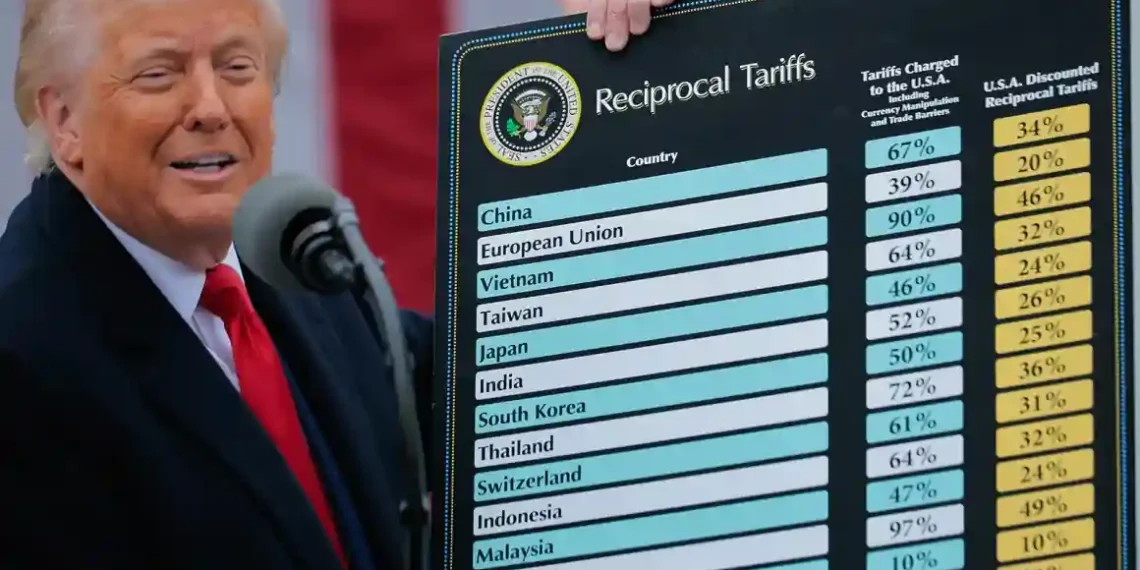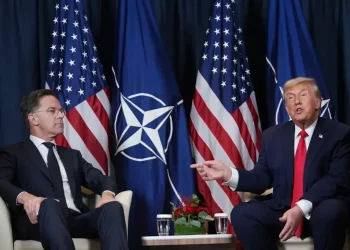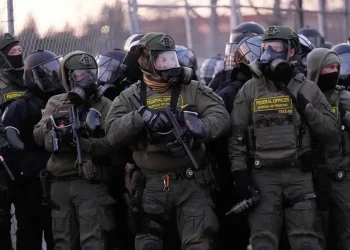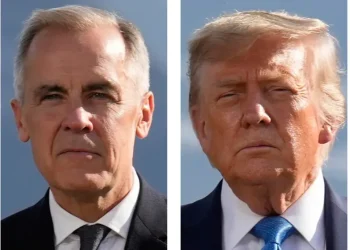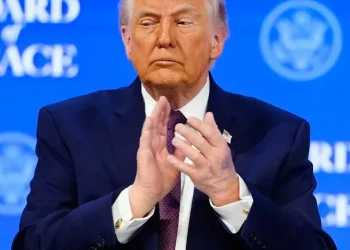China Claps Back at Trump’s Tariffs: “A Mistake Upon a Mistake”
As the trade war between the U.S. and China escalates once again, Beijing is signaling it’s not backing down—and it might even be seeing opportunity amid the chaos.
Just 48 hours after former U.S. President Donald Trump unveiled sweeping new tariffs on countries around the world, including a staggering 34% tariff on all Chinese imports, Beijing struck back with matching measures on American goods and companies. China’s Commerce Ministry didn’t mince words, calling the move “a mistake upon a mistake” and warning that “China will fight to the end” if provoked further.
“The U.S. threat once again exposes its blackmailing nature. China will never accept it,” the ministry said in a strongly worded statement.
Rather than scrambling to strike deals like many U.S. allies caught in the tariff crossfire, China is standing firm, presenting itself as a calm and confident counterbalance to what it calls “unilateral bullying” by the U.S.
The official line from Beijing? China’s economy can take the hit—and might even come out stronger.
“US tariffs will have an impact, but the sky won’t fall,” read a commentary in the state-run People’s Daily, China’s Communist Party mouthpiece.
“The more pressure we get, the stronger we become.”
Beijing’s narrative is one of resilience and defiance, backed by what it calls the “institutional advantages” of its political system. The leadership is betting that it can weather the storm—and perhaps even emerge as a new anchor in a shifting global trade landscape.
Trump’s latest tariff salvo threatens to bring total U.S. tariffs on Chinese goods to over 54%. In response, China rolled out its own 34% tariffs and announced restrictions on key U.S. exports like rare earth minerals—critical components in electronics and defense tech.
Not stopping there, Trump doubled down, warning that unless China drops its retaliatory tariffs, the U.S. will impose an additional 50% duty midweek. He also canceled previously requested trade talks with Chinese officials.
This high-stakes game of economic chicken is fueling concerns that the world’s two largest economies are locked in a spiral with no off-ramp in sight.
“No high-level diplomacy means no safety valve,” said Craig Singleton, a senior fellow at the Foundation for Defense of Democracies.
“The longer this drags on, the harder it becomes for either side to de-escalate without losing face.”
As Trump’s tariff agenda sweeps across allies and rivals alike, Beijing is trying to reshape its image—from authoritarian powerhouse to defender of open markets.
“China will only continue to open its doors wider,” the Foreign Ministry said Saturday, adding that it remains committed to globalization “regardless of the changing international landscape.”
Chinese officials have been busy wooing American businesses. Vice Commerce Minister Ling Ji recently hosted a meeting with U.S.-funded companies like Tesla and GE HealthCare, pitching China as a “safe, promising place for investment.”
The message? If the U.S. wants a trade war, China’s not afraid. And for countries weary of rising protectionism, China is ready to be a steady partner.
Economists and scholars inside China say this trade war isn’t just about money—it’s about shaping the future of global trade.
“China and the U.S. are now direct rivals in reshaping the international trade order,” said Professor Ju Jiandong from Tsinghua University.
“We’re ready to compete.”
But skepticism lingers. Beijing has long used its massive market as leverage, and some countries remain wary of becoming too dependent on Chinese exports. Still, with U.S. tariffs slamming allies like Japan, South Korea, and the EU, many nations may be forced to look eastward for economic stability.
Even in cautious Singapore, Prime Minister Lawrence Wong didn’t sugarcoat it:
“The era of rules-based globalization is over. We’re entering a new phase—more arbitrary, protectionist, and dangerous.”
Despite its confident front, China isn’t immune to the fallout. After years of grappling with a real estate crisis, high local government debt, and post-COVID economic sluggishness, the trade war adds fresh pressure.
To counter the export drag, China has rolled out new policies to boost domestic consumption, with state media promising “extraordinary efforts” to keep the economy growing.
Unlike Western governments, China’s leadership doesn’t face voter backlash. But economic stability remains crucial to maintaining public trust and political legitimacy.
With both Washington and Beijing locked into their positions, the tariff battle shows no signs of easing. And with each new escalation, the global economy inches closer to a new—and far more uncertain—trade era.
How far will it go? That remains the trillion-dollar question.
This article was rewritten by JournosNews.com based on verified reporting from trusted sources. The content has been independently reviewed, fact-checked, and edited for accuracy, neutrality, tone, and global readability in accordance with Google News and AdSense standards.
All opinions, quotes, or statements from contributors, experts, or sourced organizations do not necessarily reflect the views of JournosNews.com. JournosNews.com maintains full editorial independence from any external funders, sponsors, or organizations.
Stay informed with JournosNews.com — your trusted source for verified global reporting and in-depth analysis. Follow us on Google News, BlueSky, and X for real-time updates.
